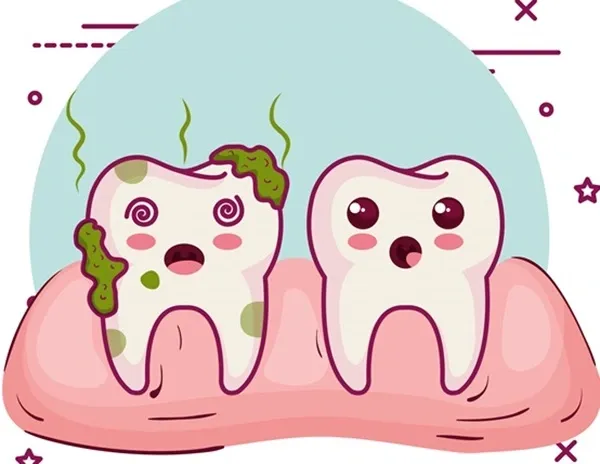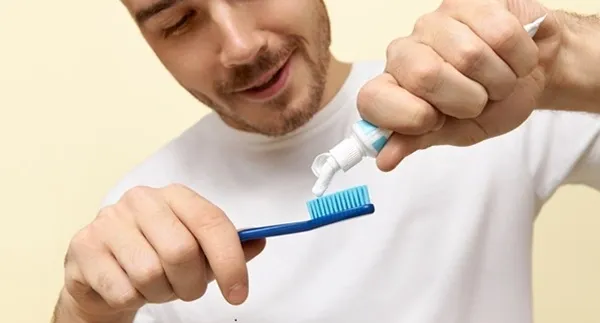Managing Bad Breath: Causes of halitosis and effective treatments.
Dental Implants Solutions
Bad breath, also known as halitosis, is a common problem that affects many individuals at some point in their lifetime. It may be acute or chronic and a source of embarrassment and anxiety in the patients. The issue with halitosis lies in comprehending its causes, its effects on social interactions and self-esteem, and possible cures for the condition.
This blog will uncover the potential cause of halitosis, diagnostic methods, and treatment options available. In the journey towards solving issues such as bad breath, it is essential to first find out what causes it to determine the kind of solution needed, whether in the short or long term.
Common Causes of Halitosis
Chronic or persistent bad breath is also called Halitosis, and many causes can trigger it. It is important to understand these causes to better cope and even prevent this condition. Here are some of the most common contributors to Halitosis:
Poor Oral Hygiene
Failure to brush effectively or floss allows bacteria to thrive on the teeth, gums, and back of the mouth. This bacteria is characterized by the production of sulfur compounds, which gives rise to breath odor.

Dietary Factors
Some foods should be avoided if you want to avoid having bad breath, including onions, garlic, spicy foods, and so on. Most of these foods are digested and metamorphose into volatile sulfur compounds, which circulate in the blood and are then exhaled through the lungs.
Tobacco and Alcohol Use
Tobacco in one’s mouth, whether cigarettes, snuff, or chewing tobacco, may lead to bad breath, stained teeth, a reduced ability to taste food, and mouth sores. Liquids, especially alcoholic beverages, tend to dry the mouth, and it is well known that saliva production decreases and bacteria flourish in any dry environment.
Medical Conditions
Halitosis is also caused by several medical conditions, such as respiratory tract infections, chronic sinus, bronchial infections, diabetes mellitus, kidney disorders, liver disease, gastrointestinal disease, and others. These conditions may cause the emanation of gases that lead to the development of Halitosis.
Dry Mouth (Xerostomia)
It is involved in the digestion process by moistening the food and has a role in cleaning the mouth by its ability to trap and remove food particles and bacteria. Dehydration or low production of saliva caused by drugs, diseases, or breathing through the mouth triggers dry mouth and bad breath.
Dental Issues
Cavities and gum disease are two types of oral health problems that can have severe consequences if not addressed immediately. In the case of cavities and periodontal diseases, the conditions in and around the teeth are perfect for bacterial activity, which leads to the formation of stinking smells. For instance, infected gums give out a pungent smell, with the odor being especially pronounced.
Sinus and Throat Infections
In addition, bacteria and infections in the sinuses, throat, and tonsils are known to cause bad breath. Another condition that can cause throat odor is post-nasal drip, in which mucus produced in the sinuses is expected to drain into the throat.
Digestive System Disorders
Some health disorders, such as gastroesophageal reflux disease (GERD), can result in the backflow of stomach acids into the esophagus, causing bad breath. Other conditions that affect the digestive system can also cause smells that are emptied during breathing out.
Diagnosing Halitosis
Accurate diagnosis of Halitosis is important in its treatment and management since different etiologies require different treatments. Various ways can be used to confirm the existence and reason for bad breath, and these include tests that are performed by the individuals themselves and tests that professionals conduct. Here’s a comprehensive guide to diagnosing Halitosis:
Self-Assessment Techniques
- Smell Test: The first technique involves using the back of your hand to lick a part of it, letting it dry for several seconds, and then testing for odor. This may help to provide an idea of the odor of your breath.
- Dental Floss Test: Clean the interdental spaces between your teeth and then whiff the floss. If it gives off an objectionable smell, it could be that you have bad breath.
- Tongue Test: Take a spoon or a tongue scraper and rub the back part of the tongue, then try to smell it. The back of the tongue also has a high tendency to house odor-depleting bacteria.
Professional Diagnosis
- Oral Examination: A dentist or a dental hygienist can perform an oral assessment to determine whether a patient has gum disease, cavities, dry mouth, or any other condition that may cause bad odor.
- Halimeter Test: A halimeter is a tool used to determine the levels of VSCs in human breath. High concentrations of VSCs usually signify Halitosis.
- BANA Test: The BANA (benzoyl-DL-arginine-naphthylamide) test identifies the enzymes of the bacteria responsible for Halitosis in the mouth.
- Gas Chromatography: This is an even more sophisticated technique in which one samples breath and analyses it to determine the specific compounds that cause the bad smell.
- Microbiological Testing: Some methods include scraping samples from the tongue, gums, or any other part of the mouth and growing the bacteria that cause the foul smell in a laboratory.
- Medical Evaluation: If oral causes are eliminated, other medical conditions may be diagnosed to determine the cause of Halitosis; these include sinus problems, digestive disorders, or systematic diseases.
Effective Treatments for Halitosis
Halitosis is best handled by curing the sources and using the right techniques to eradicate bad breath permanently. Here are several strategies for treating and preventing bad breath:
Improving Oral Hygiene
- Brushing: Closely brush your teeth at least twice daily, in the morning and before bedtime, using fluoridated toothpaste. Try not to forget to brush your tongue as it contains bacteria.
- Flossing: Brush your teeth once a day and floss to clear food residues and plaque from between them.
- Tongue Cleaning: Make it a habit to clean the back of your tongue and the front portion using a tongue scraper or the back portion of the toothbrush daily.
- Mouthwash: An antimicrobial or antibacterial mouthwash should be used to eliminate germs that cause the formation of foul-smelling gases.
Dietary Adjustments
- Avoid Odor-Causing Foods: Reduce the consumption of foods that are often associated with the development of bad breath such as garlic, onions, and spicy foods.
- Eat Crunchy Fruits and Vegetables: Foods such as apples, carrots, and celery can act as a kind of toothbrush and lead to the production of saliva.
- Stay Hydrated: It is important to drink a lot of water during the day so that the mouth produces saliva that will help to wash off the food debris and bacteria.
Quitting Tobacco and Alcohol
- Stop Smoking: Smoking and the use of tobacco products also contribute to bad breath and other oral health issues; therefore, the cessation of these habits is recommended.
- Reduce Alcohol Consumption: Reduce alcohol consumption since it tends to dry up the mouth and create a conducive environment for bacteria to thrive.
Addressing Underlying Medical Conditions
- Seek Medical Advice: Visit a doctor for treatment if you suffer from any medical conditions that may cause your breath to become foul, such as sinus infections, GERD, diabetes, or liver or kidney disease.
- Manage Dry Mouth: If you have experienced dry mouth (xerostomia), consult with your doctor or dentist about what treatments are available, such as saliva drops or even medicines that can encourage saliva production.
Dental Treatments
- Professional Cleaning: Proper dental care and check-ups should be done from time to time to help fight off oral diseases and bad breath.
- Treat Gum Disease: If you have periodontal disease, the best treatment is to visit a dentist or a periodontist. They can help you control the situation and prevent bad breath.
- Repair Cavities: It is also important to treat any cavities that may be present to avoid bacteria causing stench from the cavity.
Natural Remedies
- Herbal Solutions: Chew fresh parsley, mint, or basil to help eliminate any stinking smell in your mouth.
- Baking Soda: Diluting baking soda with water and using mouthwash can help eliminate foul smells in the mouth.
- Green Tea: Drink green tea, as it has antibacterial properties and is beneficial in fighting bad breath.
Products for Fresh Breath
- Mouthwashes and Rinses: Bacterial formation should be limited, so products that prevent it should be chosen.
- Toothpaste and Gels: The toothpaste should contain antibacterial agents within the formulation.
- Chewing Gums and Mints: Choose sugar-free foods and include chewing gum, which is known to help increase saliva flow and prevent bacteria.
Preventive Measures
- Regular Dental Check-ups: Make sure you attend dental appointments and receive oral health check-ups and cleans.
- Healthy Lifestyle Choices: Get the proper nutrition, avoid too much sugar intake, and keep yourself hydrated.
- Consistent Oral Care: Brush, rinse, and clean the tongue at least two times a day.

Conclusion
Bad breath, also known as Halitosis, is a common and often chronic health issue that many people experience. However, if one is informed and makes the necessary adjustments, one can effectively deal with it or even avoid it.
Several measures can help prevent the occurrence of Halitosis, including proper oral hygiene, improving diet, and treating any diseases that may be causing bad breath. Furthermore, consulting a dentist when necessary or a healthcare provider for underlying causes can be quite helpful.
Contact your Walnut Creek dentist, Dr Massood Darvishzadeh, DDS at Dental Implant Solutions, to learn about Managing Bad Breath: Causes of halitosis and effective treatments.
Resource:
Impacts of Diet on Oral Health in Long-Term
*This media/content or any other on this website does not prescribe, recommend, or prevent any treatment or procedure. Therefore, we highly recommend that you get the advice of a qualified dentist or other medical practitioners regarding your specific dental condition*
Subscribe To Our Newsletter
Get Updates And Learn From The Best
More To Explore



CONTACT US
Massood Darvishzadeh, DDS
2021 Mt Diablo Blvd., Suite 100A
Walnut Creek, CA 94596
(925) 939-2600info@dentalimplantsolutions.net